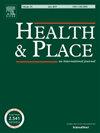巴塞罗那的能源贫困和健康不平等:2016-2021年2019冠状病毒病、能源危机和气候变化背景下的横断面趋势研究
IF 3.8
2区 医学
Q1 PUBLIC, ENVIRONMENTAL & OCCUPATIONAL HEALTH
引用次数: 0
摘要
本研究的目的是分析巴塞罗那在2019冠状病毒病、能源危机和气候变化的不利背景下,在1)能源贫困(EP)盛行之前和期间的时间趋势;根据不平等轴线(性别、年龄、社会阶层和出生国家),EP与健康之间的关系和3)EP对健康的影响。我们使用2016年和2021年巴塞罗那健康调查的数据进行了横断面趋势研究。这项研究清楚地认识到,在巴塞罗那的情况下,EP仍然是一个重要的公共卫生问题。结果表明,在当前不利的环境下,EP确实有所增加,尽管没有假设的那么急剧。它对EP对健康的影响也没有我们预期的那么大。然而,它表明,EP与健康状况不佳之间仍然存在很强的联系,特别是在低收入国家出生的人和体力劳动者等弱势群体中,EP对健康状况不佳的影响越来越大,这表明健康不平等现象正在加剧。本文章由计算机程序翻译,如有差异,请以英文原文为准。
Energy poverty and health inequalities in Barcelona: A cross-sectional trends study in the context of COVID-19, energy crisis and climate change, 2016–2021
The aim of this study was to analyse the time trends in Barcelona before and during the adverse context of COVID-19, energy crisis, and climate change in 1) the energy poverty (EP) prevalence; 2) the association between EP and health and 3) the impact of EP on health, according to the axes of inequality (sex, age, social class, and country of birth). We conducted a cross-sectional trends study using data from the 2016 and 2021 Barcelona Health Survey. This study clearly recognizes that EP continues to be an important public health problem in the context of Barcelona. The results show that EP did increase somewhat, though not as sharply as hypothesized in the current adverse context. Neither did it have as large consequences on the effects of EP on health as we expected to see. However, it demonstrates that there is still a strong association between EP and poor health, particularly in vulnerable groups such as people born in LMI countries and manual workers, who experienced an increase in the impact of EP on poor health outcomes, which suggests increasing health inequalities.
求助全文
通过发布文献求助,成功后即可免费获取论文全文。
去求助
来源期刊

Health & Place
PUBLIC, ENVIRONMENTAL & OCCUPATIONAL HEALTH-
CiteScore
7.70
自引率
6.20%
发文量
176
审稿时长
29 days
期刊介绍:
he journal is an interdisciplinary journal dedicated to the study of all aspects of health and health care in which place or location matters.
 求助内容:
求助内容: 应助结果提醒方式:
应助结果提醒方式:


